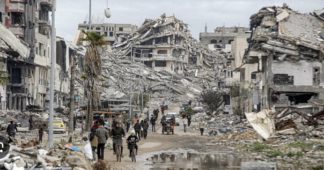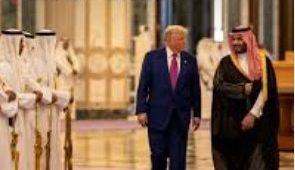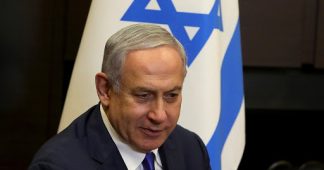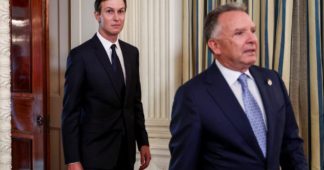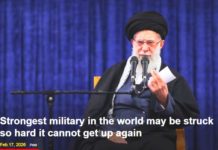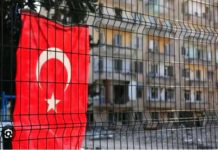By Syma Mohammed
October 6. 2025
Asim Iftikhar Ahmad said that while Pakistan believed it was a good start, there is more that could be done
Pakistan‘s permanent representative to the UN, Asim Iftikhar Ahmad, went viral on social media after a heated exchange with Israeli peer Danny Danone at a United Nations Security Council (UNSC) meeting about Israel’s strikes on Doha in September.
Ahmad lambasted Israel as a “foreign aggressor”, “occupier”, and “a perpetrator of the worst kind of state terrorism” who “plays the victim”.
Ahmad has been outspoken about the humanitarian crisis in Gaza. A book about Palestinians sits on his large wooden desk in a large office lined with books.
During an interview with Middle East Eye at the Pakistan Mission in New York City on 2 October, the day after Israel intercepted and detained activists from the Global Sumud Flotilla, Ahmad condemned the raids as “a complete blatant violation of international law”.
Pakistan does not have any diplomatic relations with Israel, so Ahmad says it has to find out about the welfare of Pakistani participants through its embassy in Cairo and other diplomatic contacts friendly with Israel.
Israel intercepted the flotilla two days after it agreed to the US‘s 20-point plan to end its two-year war on Gaza where it has killed more than 66,000 people, destroyed the country’s infrastructure and displaced Palestinians multiple times over.
The plan envisions Gaza becoming a demilitarised zone under a transitional technocratic Palestinian committee with international oversight, chaired by Trump himself, until a completely “reformed” Palestinian Authority (PA) is ready to govern.
Pakistan was one of eight countries invited to a closed-door meeting with President Donald Trump on 23 September during the United Nations General Assembly (UNGA) to discuss a peace deal in Gaza. No Palestinians were invited to the meeting.
Last Monday, after the White House formally released the plan, all eight countries released a joint statement welcoming Trump’s efforts to end the war and affirming their readiness to finalise the agreement and implement it.
On Tuesday, Pakistan’s Foreign Minister Ishaq Dar distanced Islamabad from Trump’s peace plan.
What happened?
Ahmad said none of the countries received a plan ahead of, or during, the 23 September meeting.
“There was clear recognition on the part of President Trump and his team that what is happening in Gaza is too much, and there was a need to bring it to an end. It was a general meeting. We didn’t have the plan in front of us.”
Ahmad said that all eight countries had “clear objectives”, which included an immediate and unconditional ceasefire, an end to the war, provision of humanitarian assistance, an exchange of captives with Palestinian prisoners, and many other things.
“From our side, the asks were very clear: a ceasefire, ending the war, humanitarian assistance, no forced displacement of Palestinians from the Gaza Strip, no annexation, a permanent, durable solution to the Palestinian question and an independent Palestinian state,” he said.
“The USA obviously shared some elements about what could be the next steps in terms of rehabilitation and reconstruction in Gaza and what kind of interim arrangements could be there.”
‘You can always say that there are elements [in the plan] which are not good or shouldn’t have been there. But the key things are there’
– Asim Iftikhar Ahmad, Pakistani ambassador to UN
Ahmad said other meetings took place afterwards, including one between foreign ministers and Middle East special envoy Steve Witkoff, followed by individual internal country meetings in the lead-up to this announcement by Trump. He said a copy of the draft plan was shared at a later stage.
“But it was not a draft that all sides sat around the table to write,” he said. “It was a US-led plan towards which we conveyed our views.”
“What they announced is not exactly in line with the changes we had proposed.”
Ahmad said the joint statement was intended to state the countries’ shared objectives and say “this is what we want to see. And we hope that in the implementation, those things will be ensured”, rather than tacit approval.
Ahmad said he welcomed the US’s plans for a ceasefire because the UN Security Council was unable to pass any resolutions regarding a ceasefire in Gaza, as the US vetoed them all. The US is one of five permanent council members who possess the right to veto.
“Everyone was saying that it’s only the US who can put pressure on Israelis and bring about change on ground. We saw this with the ceasefire that was agreed in January.”
Ahmad believes the US is under tremendous pressure over its support for Israel, including at the UNGA. He said no matter how much it supported Israel, it could not ignore the international pressure.
“You can always say that there are elements [in the plan] which are not good or shouldn’t have been there,” he said. “But the key things are there. It also talks about self-determination and statehood.”
“You can also find those things in the New York Declaration. The US hasn’t done it through the UN. They’ve done it separately, but it shows that they’ve also realised that it’s time to put this to an end.”
When pressed, he said that proposals countries made about timelines and withdrawal arrangements were not included, which is why Pakistan does not fully agree with all the elements in this plan. But he believed the plan was going in the right direction and could continue to be built upon.
He also expressed concerns about disgraced former British Prime Minister Tony Blair’s involvement.
“Many people think that he [Blair] doesn’t have the credibility… I think it would be better if such controversial figures were not there. He could be there in some advisory role, but not as the figure who’s running it because that will seriously dent the entire process. I think they’ll have to reconsider that aspect.”
In from the cold
Saudi Arabia and Pakistan signed a mutual defence pact soon after Israel launched strikes on Doha targeting a meeting Hamas had scheduled to discuss a ceasefire proposal. While Ahmad said the pact was in the works before Israel violated Qatar’s sovereignty, he said “the signalling is important”.
Ahmad said that international perceptions of Pakistan’s military strength profile had improved after India initiated a brief, deadly air war against it in May, and its ability to stand up for itself against “a regional bully” has proven valuable.
“The most important thing is that we defended ourselves against a bigger country in this environment where you see aggression being committed and countries not being able to defend themselves,” he said. “That’s the rationale of Pakistan having this capability, because in these times, you cannot rely on anyone. It’s basically self-reliance.”
India’s unprovoked air strikes on Pakistan in May came after gunmen opened fire in Indian-controlled Kashmir and left more than two dozen people dead.
India claimed Pakistan orchestrated the attacks. Pakistan rebuffed the charges and called for an international investigation, which Delhi refused. India then attacked Pakistan in violation of international conventions and law without providing any evidence to substantiate its claims.
Pakistan shot down six Indian jets in the ensuing skirmishes, including advanced French Rafale jets, raising fresh questions about the capabilities of Pakistan and its biggest backer, China.
Pakistan’s military performance against India, its deal with Saudi Arabia and the US’s subsequent onboarding of Pakistan into its Gaza peace process have pushed the country out of the diplomatic obscurity it was thrust into after the US withdrew from Afghanistan and reined in its so-called global war on terror.
Pakistan now sees an opportunity to reorient its relationship with the US through Trump, who hasn’t seemed at all concerned with the country’s imprisonment of its most beloved cricketing hero-turned-politician, Imran Khan.
When asked about Khan’s imprisonment, Ahmad directed MEE to contact the embassy for Pakistan’s position, which did not respond by the time of publication.
If the thorny issue of the fledgling state of democracy in Pakistan could be avoided, the current Pakistani government sees a window for a new foundation to Pakistan-US relations.
Ahmad said Pakistan is looking to avoid some of the pitfalls that have characterised the history of Pakistan-US relations so that it doesn’t rely “on just one thing”, which has often been either security or counterterror.
“There are discussions on various tracks such as trade, investment and cultural things. I’m sure counterterrorism and defence and the bigger issues are part of that,” he said. “We want to avoid the ups and downs that have been there in the past.”
We remind our readers that publication of articles on our site does not mean that we agree with what is written. Our policy is to publish anything which we consider of interest, so as to assist our readers in forming their opinions. Sometimes we even publish articles with which we totally disagree, since we believe it is important for our readers to be informed on as wide a speCtrum of views as possible.

